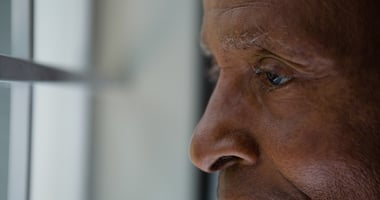Older Volunteers Delivering Loneliness Interventions Found to Be Less Lonely Themselves

A volunteer program that engages lonely older adults in delivering psychosocial interventions to other lonely older adults benefited the volunteers themselves by reducing their loneliness, stress, and depressive symptoms and increasing their social engagement, according to study in the American Journal of Geriatric Psychiatry.
The program could be a scalable solution to address the loneliness epidemic in this country, according to lead author Lisa Warner, Ph.D., of the Department of Psychology at MSB Medical School in Berlin and colleagues.
As part of the “Helping Alleviate Loneliness in Hong Kong Older Adults (HEAL-HOA)” trial, 185 adults aged 50 to 70 years old were randomized to work as volunteers delivering a manualized loneliness intervention by telephone to other older adults as part of a concurrent trial measuring the effect on recipients’ loneliness. A control group of 190 older adults participated in a psycho-education program and social gatherings but did not volunteer. Participants were recruited by the research staff through household visits and advertisements at public housing estates and community centers for older adults.
The primary outcome was loneliness as measured by the Chinese version of the 20-item Revised UCLA Loneliness Scale. Secondary outcomes were loneliness measured by the Chinese version of the De Long Gierveld Scale and measurements of social engagement, perceived social support, perceived stress, and symptoms of depression and anxiety.
Volunteers reported medium-sized reductions in their loneliness on the UCLA and De Long Gierveld scales compared with the control group. These effects remained even after controlling for age, gender, education, romantic cohabitation, and number of chronic illnesses. Moreover, the volunteer group reported increased engagement with their social network (small effect), decreased perceived stress (medium effect), and depressive symptoms after six months (small effect). There was a minimal effect on perceived social support and anxiety symptoms.
“Considering that volunteers engaged in only about half an hour of delivering telephone-based interventions per week for about 6 months, the effects on loneliness were substantial in our trial,” the authors wrote. “These positive effects may have been attributable to the combination of volunteering itself and the contents of the volunteering activity, consisting of receiving training and delivering structured loneliness interventions.”
They noted that future qualitative research might explore whether the effect of peer-to-peer counseling is related to the helpers’ learning how to cope better with their own problems.
For related information, see the Psychiatric News special report by former APA President Dilip Jeste, M.D., “Positive Psychiatry Shines Light on Patients’ Strengths, Wisdom.”
Don't miss out! To learn about newly posted articles in Psychiatric News, please sign up here.





